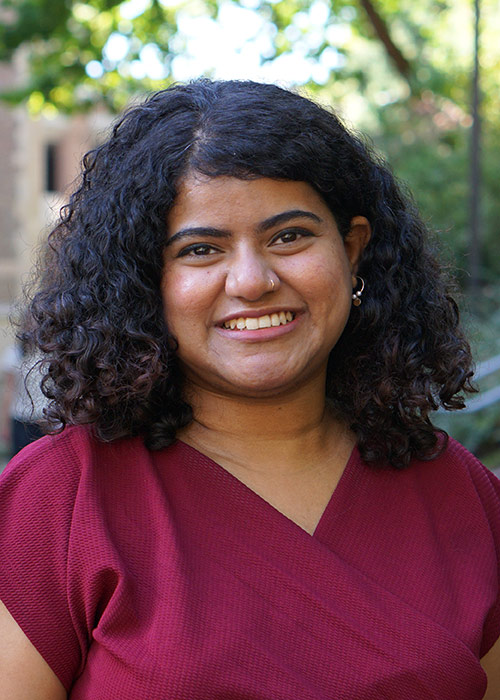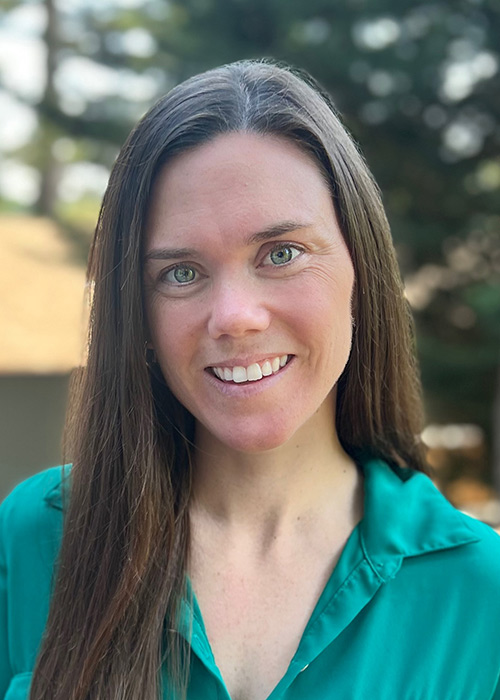Practice Experience
During the practice experience, students complete supervised practice rotations in clinical, community, and food service settings. The equivalent of a practice experience in a non-coordinated program would be a Dietetic Internship.
Timeline
Students in the Graduate Coordinated Program in Dietetics (GCPD) complete 4 quarters of graduate school classes, followed by 3 quarters (winter, spring, and summer of year 2) of full-time practice experience. The GCPD follows the academic calendar.
Sites and Preceptors
Practice experience sites are available throughout the Greater Seattle region. Students may be assigned to a rotation up to 60 miles from the University of Washington Seattle Campus. Though we highly recommend public transit, students are required to have access to personal transportation for some rotation sites and GCPD events.
Clinical Rotations
Clinical rotations take place at various sites and include rotations in ambulatory clinics and acute care facilities. Some of the facilities providing clinical experiences for our interns include:
- University of Washington Medical Center – The UW Medical Center is a center of advanced medical practice with several transplant units, many specialty medicine units, and intensive care for high-risk pregnancy and low birth weight infants. Listed among the top 10 hospitals in the nation by U.S. News & World Report, University of Washington Medical Center offers primary and specialty care to people in Washington, Alaska, Montana, Wyoming and Idaho.
- Harborview Medical Center – Harborview Medical Center is the major inner city, level one trauma care medical facility with specialty units in rehabilitation and geriatrics. Owned by King County and managed by the University of Washington, Harborview is the major regional health care facility for the Pacific Northwest and Alaska. The medical center’s mission is to provide exemplary patient care, teaching, research and community service.
- Valley Medical Center – Founded as a public district hospital in 1947, Valley Medical Center is an acute care community hospital and clinic network. Valley Medical Center is home to one of the busiest emergency departments in the state and is recognized as a regional leader in cancer treatment, heart and vascular services, joint replacement and orthopedics, neurosciences, stroke and spine, childbirth and neonatal care.
- Northwest Hospital & Medical Center – Northwest Hospital & Medical Center is a full-service medical center based in North Seattle, offering emergency and inpatient and outpatient medical, surgical and therapeutic care. Northwest Hospital is a community-based, non-profit hospital with world-class medical staff that provides innovative, technologically advanced, patient-centered care.
- Children’s Hospital and Medical Center – Children’s Hospital and Medical Center is the premier pediatric referral center for the Pacific Northwest. As the premier pediatric referral center for the Pacific Northwest, Children’s is recognized as one of the top three children’s hospitals in the country by Child Magazine.
Other Sites
Rotations may take place at multiple sites including: Public Health – Seattle & King County, Senior Services, Washington State Department of Health, Washington State Extension Service, Community Health Clinics, Center on Human Development and Disability, and WIC.
Role of a Preceptor
Preceptors play a vital role during the supervised practice experience (aka internship). Interns are assigned to a practicing dietetic preceptor for each rotation. The preceptor guides the student through completing the tasks expected of a nutrition professional in their position (i.e. patient care, management tasks, public health planning, etc.). The preceptor supervises the intern’s work as they engage in dietetic practice. Our preceptors are dedicated to fostering an encouraging learning environment.
Related: Read more about advantages of in-person mentoring with a preceptor
Rotation Types
Students are required to complete the competencies in accordance with the accreditation requirements of the Accreditation Council for Education in Nutrition and Dietetics (ACEND). As an ACEND accredited program, the GCPD provides 8 months of supervised practice in the following rotations:
- Management (3 weeks)
- Ambulatory (3 weeks)
- Clinical (10 weeks)
- Food Service (3 weeks)
- WIC/pediatric experience (3 weeks)
- Concentration area (see below)
Concentrations
The University of Washington coordinated program offers two concentration areas (MNT & PH) which are described below. Students work closely with faculty to select a concentration rotation which meets their career goals. Other rotations are assigned.
Medical Nutrition Therapy (MNT)
During the Medical Nutrition Therapy (MNT) Concentration rotation, students will work with an RD in an advanced practice area. The MNT rotation helps students build an advanced depth of knowledge in one practice area aligned with the strengths of our partner sites. Our MNT partners’ practice areas include: pediatric inpatient, pediatric outpatient/specialty care (such as the MCHB traineeships), collegiate sports, critical care & trauma, transplant, and eating disorder treatment programs.
MS students typically complete this 7-week rotation. PhD students may select this concentration area if it aligns with their career goals. Sites include the University of Washington affiliated hospitals and clinics, the Center for Children with Developmental Disabilities, UW Athletics, Children’s Hospital and renal facilities. MNT students present a final clinical project during the annual GCPD Poster Session.
See Recent MNT Concentration Clinical Posters
Public Health (PH)
During the PH/ Practicum rotation, students will work with a public health nutrition expert in an advanced practice area. MPH students typically choose this 7-week concentration rotation. PhD students may select this concentration area if it aligns with their career goals. This concentration may also be used to meet the practicum requirement required of all School of Public Health MPH students. Recent sites include Public Health – Seattle & King County, the Washington State Department of Health, the Childhood Obesity Prevention Coalition, WSU Extension, the Center for Children with Developmental Disabilities, and Seattle Public Schools Nutrition Services.
Recent PH Concentration Projects
Registration & Schedule
Registration
The dietetic practice experience (Winter, Spring, and Summer of year 2) is offered administratively through UW Professional and Continuing Education (PCE). Students must register through PCE rather than through MyUW for NUTR 561, the dietetic practice experience course. See Costs for more information.
International Students
- Students with an F-1 visa must work with the University of Washington’s International Student Services (ISS) office to apply for Curricular Practical Training (CPT), which serves as authorization for activities related to their program of study, before starting the supervised practice (internship).
- Students with a J-1 or J-2 visa must meet with their program sponsor prior to starting academic training.
Schedule
The GCPD practice experience calendar coincides with the University of Washington academic calendar. In year two, students are in classes autumn quarter and the Practice Experience (internship) in winter, spring and summer quarters. The program concludes at the end of summer quarter (late August).
Students are expected to be in practice experience rotations 32 hours per week. Daily start and end times vary depending on the site and preceptor. One day a week students are on campus for the GCPD seminar.
Annual GCPD Events
- Winter: Renal Workshop, Legislative Day in Olympia
- Spring: Washington State Academy of Nutrition and Dietetic Annual Conference
- Summer: GCPD poster session and year-end celebration
Quarter Breaks
Students have group and/or individual meetings on the Monday and Tuesday of finals week. Students are on break from the Wednesday of finals week until the start of the following quarter. A celebration and poster session is held the final day of the Practice Experience which is scheduled for the last day of summer quarter.


